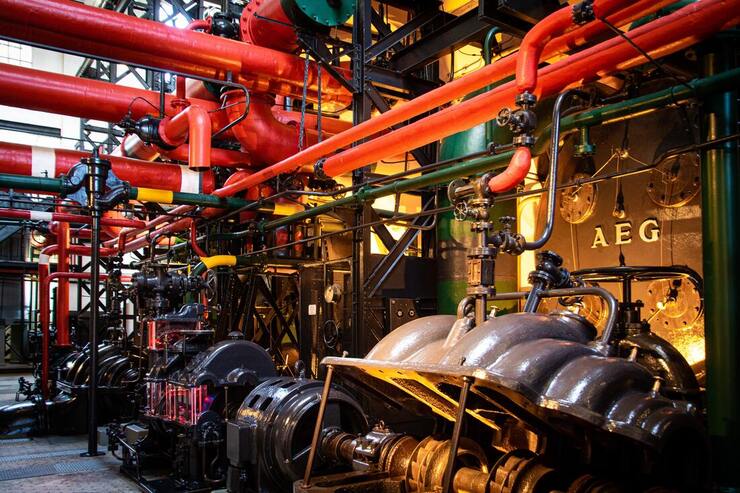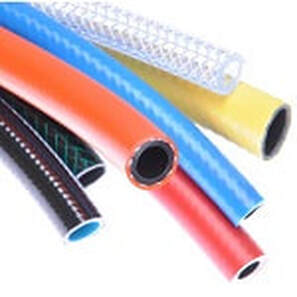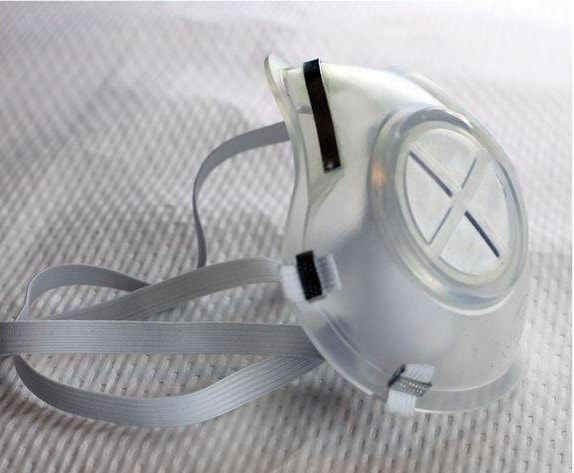If you like reading this blog, be sure to check out our Extrusion Blog, featuring new content.
Get the Latest Industry News Delivered to your Inbox Each Month
|
|
Thank you for Signing Up |


August 1, 2020
ASME’s New Nonmetallic Pressure Piping Standards
ASME’s New Nonmetallic Pressure Piping Standards
Technological advances in nonmetallic pipe material sciences have led to innovations in the materials available, including new plastic polymers and composites. These new materials and manufacturing processes allow many industries and companies to move away from metal pipes in high pressure applications to plastic pipes instead. Plastic piping is noncorrosive and more flexible in addition to being more cost-effective, allowing it to be used in a wide variety of industries, from oil and gas to utilities and cooling water applications. But until recently, there were no comprehensive standards for these high pressure plastic pipe systems. There were other nonmetallic piping standards from ASME as well as other standards organizations but these other standards were only for the individual components and not for the system as a whole, including how to design, construct, install, and test/inspect the piping. So, in October 2019, ASME released a new set of standards specifically for nonmetallic pressure piping systems.
The standards were developed by the Nonmetallic Pressure Piping Systems (NPPS) Standards Committee which is composed of subject matter experts that have spent years designing these systems. Together these three standards cover new nonmetallic high pressure piping systems from the material specifications, design requirements, and manufacturing to the final system installation, testing, and inspection. The three new standards include:
The standards were developed by the Nonmetallic Pressure Piping Systems (NPPS) Standards Committee which is composed of subject matter experts that have spent years designing these systems. Together these three standards cover new nonmetallic high pressure piping systems from the material specifications, design requirements, and manufacturing to the final system installation, testing, and inspection. The three new standards include:
- NM.1: Standard on Thermoplastic Piping Systems (e.g., PVC, high density polyethylene)
- NM.2: Standard on Glass-Fiber-Reinforced Thermosetting Resin Piping Systems (e.g., FRP)
- NM.3: Standard on Nonmetallic Materials (e.g., product standards, design rules, and installation)
August 2, 2020
WL Plastics Cancels Planned Expansion of HDPE Production in NY
WL Plastics Cancels Planned Expansion of HDPE Production in NY
Fort Worth, Texas-based WL Plastics recently announced they have canceled their planned high density polyethylene pipe production facility in Fort Edward, NY. This would have been the company’s ninth manufacturing plant and was planned to start operations in mid-2020 at the site of a former General Electric dewatering plant at Hudson Falls. The plant would have created 50 new jobs in the Fort Edward area.
WL Plastics cited COVID-19’s impact on the company’s business, including a decrease in the demand for their large 54-inch water, sewer, mining, and industrial pipes, as a contributing factor in their decision. The plant originally would have increased WL Plastics access to customers in the eastern US as well as Canada. To read more about the announcement, click here.
WL Plastics cited COVID-19’s impact on the company’s business, including a decrease in the demand for their large 54-inch water, sewer, mining, and industrial pipes, as a contributing factor in their decision. The plant originally would have increased WL Plastics access to customers in the eastern US as well as Canada. To read more about the announcement, click here.
August 3, 2020
MIT Researchers Create Innovative Injection Molded N95 Mask to Reduce Waste and Solve Shortage
MIT Researchers Create Innovative Injection Molded N95 Mask to Reduce Waste and Solve Shortage
COVID-19 caught many hospitals and manufacturers off-guard, causing N95 shortages around the world. Current N95 masks are meant to be single-use but nurses, doctors, and other medical specialists have been forced to reuse N95 masks over and over, well beyond their intended use. iMASC, which stands for Injection Molded Autoclavable, Scalable, Comfortable, was created by researchers from Massachusetts Institute of Technology (MIT) to be a new reusable and sterilizable version of the N95 face mask protecting healthcare workers everywhere.
The new iMASC will cost about $15 at launch and is made of durable injection molded silicone rubber that can easily be sterilized in an autoclave or oven or by soaking in a bleach or rubbing alcohol solution up to 100 times. The masks include one or two small N95 filters that are easily changeable after each use, significantly reducing waste. A second version of the iMASC is already in the works and the team is seeking FDA and National Institute for Occupational Safety and Health (NIOSH) approval while also searching for an injection molding partner to start production. To read more about these innovative N95 masks, click here.
The new iMASC will cost about $15 at launch and is made of durable injection molded silicone rubber that can easily be sterilized in an autoclave or oven or by soaking in a bleach or rubbing alcohol solution up to 100 times. The masks include one or two small N95 filters that are easily changeable after each use, significantly reducing waste. A second version of the iMASC is already in the works and the team is seeking FDA and National Institute for Occupational Safety and Health (NIOSH) approval while also searching for an injection molding partner to start production. To read more about these innovative N95 masks, click here.
© Copyright Bryan Hauger Consulting, Inc., 2018. All rights reserved.



